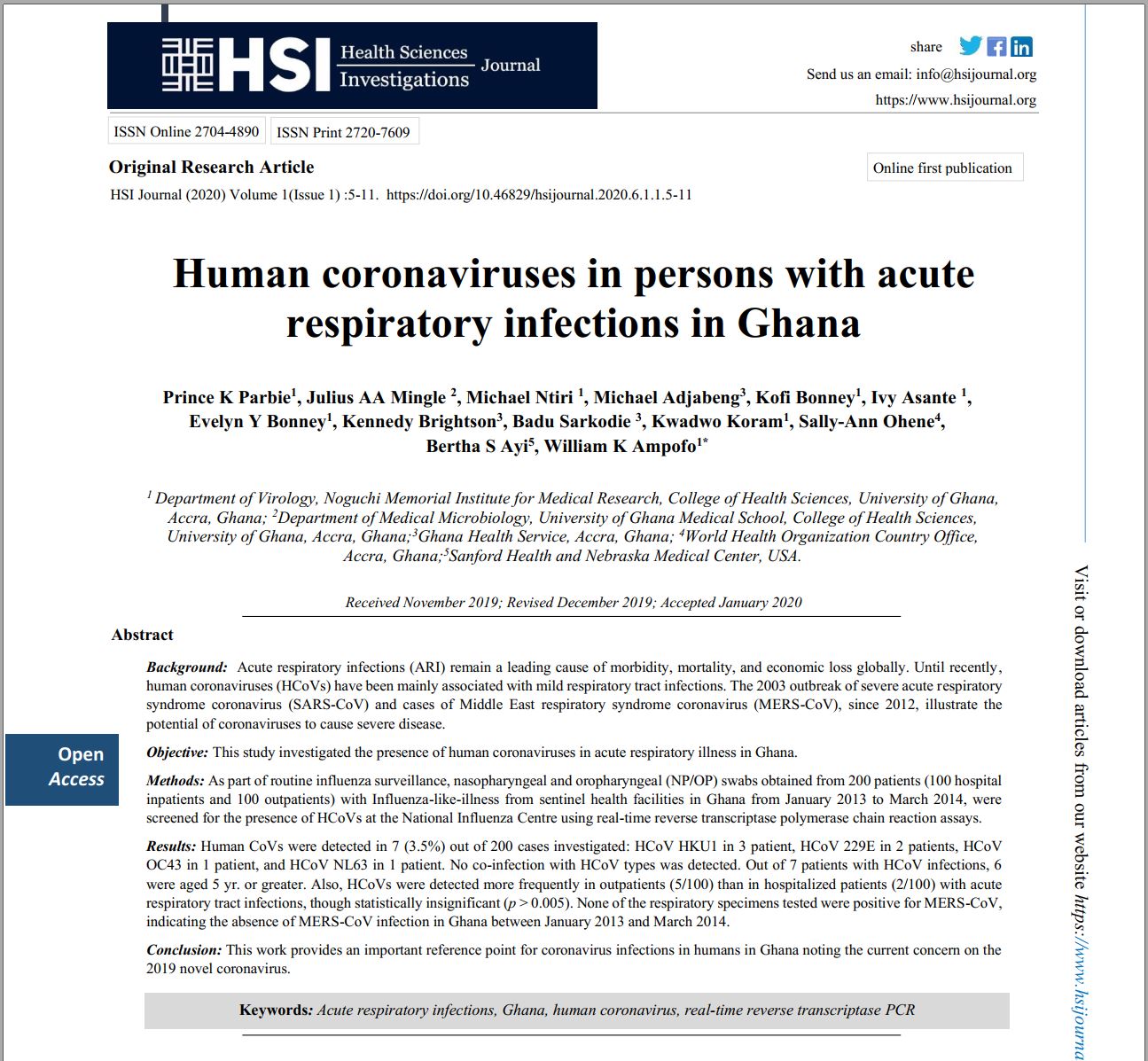Human coronaviruses in persons with acute respiratory infections in Ghana
Human coronaviruses in persons with acute respiratory infections in Ghana
Abstract
Background: Acute respiratory infections (ARI) remain a leading cause of morbidity, mortality, and economic loss globally. Until recently, human coronaviruses (HCoVs) have been mainly associated with mild respiratory tract infections. The 2003 outbreak of severe acute respiratory syndrome coronavirus (SARS-CoV) and cases of Middle East respiratory syndrome coronavirus (MERS-CoV), since 2012, illustrate the potential of coronaviruses to cause severe disease.
Objective: This study investigated the presence of human coronaviruses in acute respiratory illness in Ghana.
Methods: As part of routine influenza surveillance, nasopharyngeal and oropharyngeal (NP/OP) swabs obtained from 200 patients (100 hospital inpatients and 100 outpatients) with Influenza-like-illness from sentinel health facilities in Ghana from January 2013 to March 2014, were screened for the presence of HCoVs at the National Influenza Centre using real-time reverse transcriptase polymerase chain reaction assays.
Results: Human CoVs were detected in 7 (3.5%) out of 200 cases investigated: HCoV HKU1 in 3 patient, HCoV 229E in 2 patients, HCoV OC43 in 1 patient, and HCoV NL63 in 1 patient. No co-infection with HCoV types was detected. Out of 7 patients with HCoV infections, 6 were aged 5 yr. or greater. Also, HCoVs were detected more frequently in outpatients (5/100) than in hospitalized patients (2/100) with acute respiratory tract infections, though statistically insignificant (p > 0.005). None of the respiratory specimens tested were positive for MERS-CoV, indicating the absence of MERS-CoV infection in Ghana between January 2013 and March 2014.
Conclusion: This work provides an important reference point for coronavirus infections in humans in Ghana noting the current concern on the 2019 novel coronavirus.


